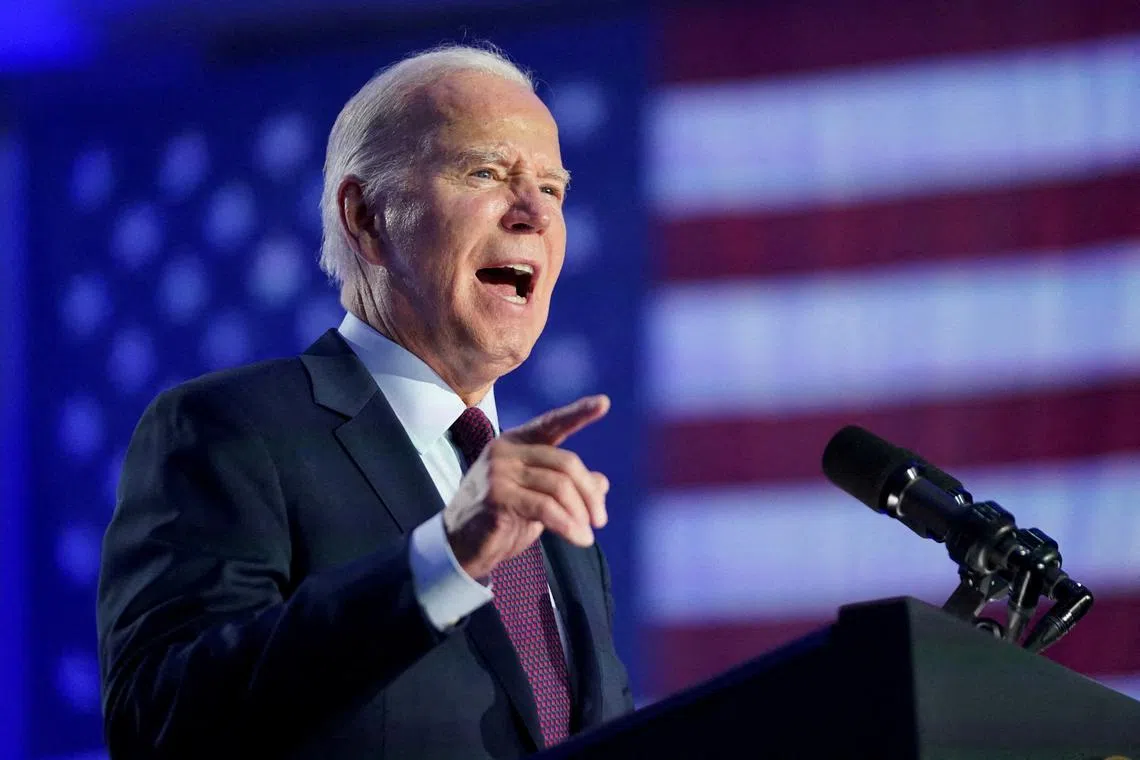Biden administration to limit credit card late fees in move against junk fees
Sign up now: Get ST's newsletters delivered to your inbox

FILE PHOTO: U.S. President Joe Biden holds a campaign rally ahead of the state's Democratic presidential primary, in Las Vegas, Nevada, U.S. February 4, 2024. REUTERS/Kevin Lamarque/File Photo
The Biden administration on Tuesday unveiled its latest measures to combat rising consumer costs and charges known as junk fees, including an interagency effort to crack down on inflated prices and limiting what banks can charge for late credit card payments.
The Justice Department and the Federal Trade Commission will lead a joint "strike force" aimed at stopping illegal corporate behavior that hikes prices on Americans through anticompetitive or fraudulent business practices, said administration officials.
The administration will also finalize a rule that slashes credit card fees from an average of $31 down to $8, and another that gives ranchers and farmers more leverage when negotiating contracts with meat packers, officials said.
"Late credit card fees have gotten out of control," Consumer Financial Protection Bureau Director Rohit Chopra said during a press call previewing the moves.
The moves to address rising costs come as Democratic President Joe Biden and his allies try to change views among the many American voters unhappy with his economic stewardship.
Biden is set to highlight the steps during the sixth meeting of the Competition Council, which he created by executive order to stop anticompetitive practices in sectors from agriculture to drugs and labor.
Biden has successfully pressured companies such as Airbnb and Live Nation to limit junk fees - or extra charges - that customers pay when booking concert tickets, hotels and airfares.
The White House Council of Economic advisers estimates that the administration's actions will eliminate more than $20 billion in junk fees annually. The moves to counter junk fees is expected to feature in Biden's State of Union Speech on Thursday, White House aides say.
Chopra said the limit on credit card late fees will save American families $10 billion annually, or an average of $220 per year for the 45 million cardholders who are charged late fees annually. Credit card issuers have been exploiting a loophole created in 2010 that allowed them to escape a federal ban on unreasonable fees by increasing them each year with automatic inflation adjustments, Chopra said.
The Department of Agriculture rule, first proposed last September, prohibits among other things retaliation against producers for activities like asserting rights under the Packers and Stockyards Act, which aims to ensure competition in the livestock, meat and poultry markets.
"This final rule will provide for clearer, more effective standards by which to govern all of this in the modern marketplace," Agriculture Secretary Tom Vilsack said on a Monday press call. REUTERS


